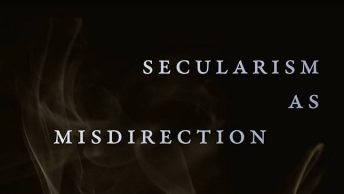While the world press keeps its focus on the situation in Burma, the print media in India seems to have moved on. Over the last fortnight, there were a few pieces which focused attention on India’s growing closeness to the Burmese military regime over the last two decades, and what India should do at the present time (more on that later). Yet, when compared to the attention that media elsewhere is focusing on the Burmese crisis, this seems inadequate. It would be a pity if the current India-Australia cricket series garnered more news-space than Burma in the days to come, because this could well be a critical time in Burma’s history. Developments in that tragic nation need the attention of “the world’s largest democracy” and one of Burma’s most crucial neighbours. Perhaps the media’s behaviour only reflects the ominous silence of the Indian government on the issue, which has so far offered only a few wishy-washy statements on the developing crisis. C. Raja Mohan had an excellent column in the Indian Express (dated Sep 28) where he outlined the strategic considerations and calculations involved in the stance that India can adopt towards the current crisis. In it, he makes a passing reference to the fact that India’s Petroleum minister, Murli Deora, was in fact in Yangon on September 23 inking an energy deal with the junta just as the protests were gathering momentum outside in the streets (details of this meeting are available in an India Today story by Saurabh Shukla titled “Supping with the Junta” in the issue dated October 8). After making several telling points about foreign policy decisions made by India in the past, Raja Mohan argues as follows:
“In dealing with its neighbours, India had to constantly juggle between the occasional necessity of intervention to protect its own interests and the persistent temptation to deal with whoever is in power. High moralpolitik has not been the defining feature of India’s neighbourhood policy; it was always about the difficulty of managing competing imperatives and coping with the consequences of political change within the region. The real policy question for India in Burma is not whether it should intervene in favour of the pro-democracy movement, but how and on what terms. Ending the long silence on Burma, then, should be the first step towards a more vigorous approach towards promoting political change in Burma. India had confronted a similar challenge in Nepal last year when people poured out on to the streets demanding an end to monarchy’s autocratic rule. India was deeply conflicted between two divergent policy options: preserving equities in the ancien regime or aligning itself with the forces of change in Nepal. Despite deep divisions within the government on the appropriate approach to Kathmandu, India eventually called it right and intervened decisively in favour of a democratic transformation in Nepal. The policy change towards Kathmandu involved major risks; but the political will to change course had also generated enduring rewards. India must now embark on a similar policy of nudging the military rulers of Burma towards political reform. The risks of such a policy will be balanced by two important factors. One, the old order in Burma is no longer sustainable. As dictatorships go, the Burmese one has been utterly incompetent in either buying legitimacy by co-opting critical sections of the population or bringing about reasonable economic progress that might have encouraged the popular tolerance of political repression. The Burmese military has just managed to impoverish one of Asia’s richest nations. As the Buddhist clergy take away whatever shred of legitimacy that Burmese rulers could claim, it makes sense for India to be on the right side of impending political change. Two, New Delhi’s passive policy has ceded the high ground to Beijing, which has positioned itself as the agent of influence as well as the principal interlocutor between the international community and Burma. By simply tailing China on engaging the dictators in Burma, India has abandoned its own strong and unique leverages. If India is serious about its regional role and wants to stay in competition with China for influence in Burma, New Delhi must differentiate itself from Beijing, and reestablish itself as an empathetic supporter of the Burmese aspirations for political change.” Four days later, in the Express issue dated Oct 02, Shishir Gupta wrote a column which appears to be a direct response to Rajamohan’s argument as evident in its title: “Rangoon isn’t Kathmandu.” Arguing that India’s strategic interests in curbing militancy in the North-east should factor in India’s support of the military junta in Burma, Gupta asserted: “Although the EU-US wants India to repeat its Nepal performance in Burma, India knows that the two situations are very different. The fact is that the strategic levers at India’s command in Nepal are missing in Burma. Indo-Nepal trade stands at $ 2 billion with Kathmandu relying totally on New Delhi for fuel supplies and 70 per cent of its exports and 65 per cent of its imports. India may share a 1338 km border with Burma, but bilateral trade is a sluggish $ 569 million, with Burma having direct sea access and strategic lines of infrastructure and communication to Kunming in China. … … … The UPA political leadership, in particular the Congress leaders, may privately be supportive of Aung San Suu Kyi and the monks now on Rangoon’s streets, but overtly it will have to deal with whosoever is in power; such is the security calculus. New Delhi also knows that with the Burmese army controlling every part of society, transfer of power in that country will have to come through negotiations and not through revolution or isolation of the military regime. New Delhi has not forgotten that two years after Suu Kyi was awarded the Jawaharlal Nehru Award for International Understanding in 1993, the Burmese army suddenly withdrew in the midst of Operation Goldenbird and the surrounded militants escaped from the Indian dragnet. It does not want to visit that nightmare again.”
An Express editorial dated Sep 24 (which urged proactive action not for reasons of morality but because not doing so will give China an advantage over India) identified the following three factors as the basis for India’s reticence to pull up the military regime in Burma: “the need for Burmese Army’s cooperation in dealing with the insurgencies in the Northeast, Burma’s natural role as a land-bridge to Southeast Asia, and the importance of preventing Burma’s total dependence on China for external support.” One should probably add India’s oil and energy interests to this list. Looking at the arguments which focus on short and medium term strategic interests, I for one am reminded of the arguments offered by governments which supported the apartheid regime in South Africa right until the early 90s. I do not want to force the comparison (for there are many important differences), but in some ways, the military junta in Burma and Aung San Suu Kyi have the same symbolism and resonance for the current generation, that the apartheid regime and Nelson Mandela had for those of us who grew up in the 80s and 90s. India was on the right side of that issue, and gained moral standing across the world and especially in South Africa for its stance. Over time, this has resulted in economic gains for India (I cringe a bit as I set this out, but I know that for a disproportionate number of people today, such arguments are often more compelling than those based on doing what is right). To end, I want to recall a particularly evocative statement from PM Manmohan Singh’s Aug 13 speech in Parliament on the Indo-US nuclear deal. This is what he said: “Finally, Sir, let me end by saying that we have achieved an Agreement that is good for India, and good for the world. I am neither given to exaggeration nor am I known to be self-congratulatory. I will let history judge; I will let posterity judge the value of what we have done through this Agreement. In days to come it will be seen that it is not just the United States but nations across the world that wish to arrive at a new equilibrium in their relations with India. This agreement with the United States will open new doors in capitals across the world. It is another step in our journey to regain our due place in global councils. When future generations look back, they will come to acknowledge the significance of this historic deal.” I do not quote this to reopen the debate over the Indo-US nuclear deal. I do so to make the point that if PM Singh’s government is genuinely concerned about the judgment of history and posterity, and if it wants to regain India’s “due place in global councils,” it will have to show that when called upon to do so, India can cast aside narrow short term gains, and indeed act against them to take on a leadership role on the great moral issues of our time. History usually remembers those actions where crucial figures act against their own interests to do the right thing.







Here is a link to a petition to PM Manmohan Singh:
http://www.petitiononline.com/burma123/petition.html
Very good post and a very eloquent one. I do think the government’s position on Myanmar is an important litmus test of whether we really could be the great power we want to be. After all, strong moral values and democratic credentials have been the hallmark of India’s participation in global civic life. What was especially interesting to see was the CPI (M)’s unequivocal stance on Myanmar, which did not really get the attention it deserves. As much I disagree with the party personally, I commend their stance on this issue.
Vikram,
We are not a great power. We are a very poor and “weak” one, as it happens. And in any case, why is that relevant? If it is morally right to support the monks and Aung Sang Suu Kyi, then we should do so, irrespective of whether we are “great” or not.
It ought to be noted that there never was a time when we took foreign policy decisions purely on moral grounds. In 1956, we failed to condemn the Soviet invasion of Hungary; in 1968, the invasion of Czechoslovakia, and in 1979, the invasion of Afghanistan. We condemned the apartheid regime of South Africa rightly but we might also remember that we sold that regime our outdated Centurion tanks from World War II (in 1969?) We never condemned the Chinese takeover of Tibet – and haven’t done so till now. Or for that matter, Saddam or Mugabe or…
So where does this leave us? Yes, it would be nice if we could take a moral position and live with the consequences, unpleasant as they may be. If I remember rightly, the last time we tried that with the **** (fill in favourite expletive) in Rangoon, they retaliated by offering the Chinese naval bases in the Bay of Bengal! We immediately toned down our rhetoric.
The Burmese generals may be unscrupulous but they don’t seem to be dumb. They have some strategic assets (ports, oil etc.) which are coveted by two large rival countries. The Burmese generals have essentially played off one rival against the other to get the best for themselves. It is a game that we were accused of playing ourselves – indeed, one American interpretation of our “non-aligned” policy is exactly that. (sorry, can’t remember reference.)
It is easy to criticise the Indian government, and yet, I cannot bring myself to say that I would do anything very different than what Pranab Mukherjee and the foreign ministry have done.
What might have helped is if China had a shared commitment to democracy. In that case, the two countries could have jointly told the Burmese generals that to restore democracy was paramount and playing off the two rivals was a game that was not going to work. Unfortunately, the Chinese regime is not committed to democracy. And we, for all our “great” power pretensions, are no US, or even, the UK or France or even close to them. We are a “weak” power and our wishy washy actions characterize that predicament.
An article by Shashi Tharoor in the Times of India (http://timesofindia.indiatimes.com/S_Tharoor_Ethics_and_foreign_policy/articleshow/2456205.cms) also makes interesting reading.